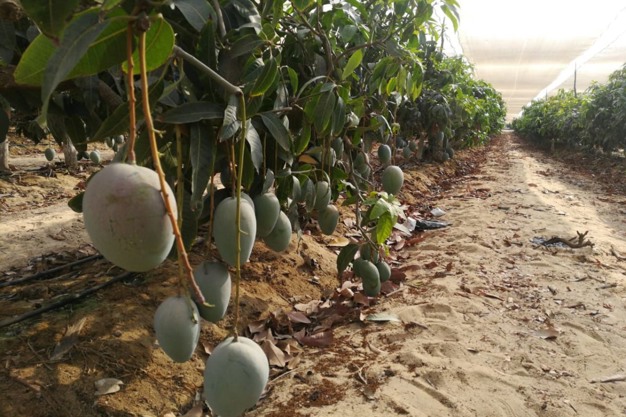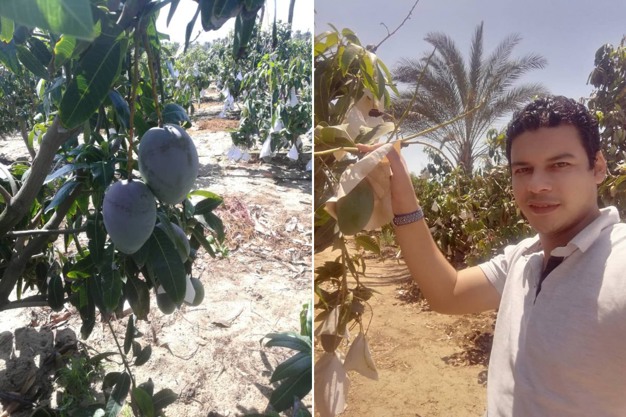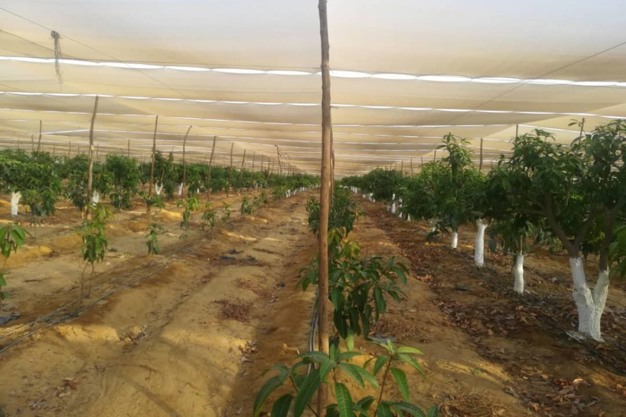The Egyptian mango season is about to begin. "Calendars will start at normal times, and volumes and quality will remain consistent despite the challenging effects of climate change," says Walid Sallam, Export Manager and Technical Consultant with Egyptian companies, such as MK Entreprise and Suez Canal Trade and Agricultural Development.

The growing period was marked by the stress caused by climate change, as Sallam describes: "Year on year, Egyptian mango technicians and growers are adapting better and better to climate change. We always make sure that quality starts in the field, and that a good program of fertilization, irrigation, and protection is designed and followed during the growing season. In Egypt, over the last five years, two main stresses have affected mango trees: the cold snap that arrives in December and kills young branches and damages old ones; and the summer heatwave, which affects flowering and directly reduces mango production."
The grower continues: "These problems have been overcome thanks to the analysis of the physiology of defects and the good precautionary practices developed by some of Egypt's leading mango experts in collaboration with academics from agricultural colleges and the experience accumulated over the years. I can assure you I'm optimistic about mangoes in Egypt. Following our visits to various mango farms, the quality and quantity are very good, and export quality will be trouble-free this year."

Sallam promises: "Egyptian mango production is set to reach new heights this year, thanks to the extension of cultivation areas and higher yields per hectare. This increase in production makes Egypt a key player in the global mango market. Horizontal mango production is increasing year-on-year, as more and more investments are implemented, particularly for the Keitt variety. Most of the nurseries we visited grow this variety, renowned for its long harvest calendar, long shelf life, and high demand. On the commercial side, last year we saw strong demand from Russia and Saudi Arabia for Egyptian mangoes, prompting us to work in two shifts to meet customer demand. We've had good conversations and exchanges of ideas with importers from Russia, Saudi Arabia, and Lebanon over the last two weeks here in Egypt, which has given us reasons to believe in the commercial success of the season."
This season will also see progress on the logistical challenges posed by long shipping times, according to Sallam. He explains, "Last year, Russia alone imported around 30% of all Egyptian mango exports, followed by Saudi Arabia with about 20%, then Jordan, UAE, Lebanon, Oman, Kuwait, Libya and the UK. Last year, I was concerned about the long shipping times to Russia, but I experimented with different techniques to maintain the quality of our mangoes during the 30 days of transport, which was risky in some cases. We have found the best technical formula between temperature, ventilation, and control of the presence of ethylene in the atmosphere of the container, which will enable us to improve our volumes to Russia and distant destinations in general."

This year's harvest is expected within 2 weeks to 2 months, depending on varieties, but the exact date for the start of the season is yet to be announced, says Sallam. "As every year, we ensure that mango ripening is the main criterion for harvest decisions, to ensure good picking and good arrivals abroad, and we take this seriously with every harvest to ensure a successful campaign. The color of the skin, the internal color of the flesh, the soluble solids content (SSC), and the firmness of the fruit are the main tools for deciding to harvest and start exporting in order to obtain high-quality exported mangoes. The geographical harvest schedule will be the same as every year, starting in Upper Egypt, in Aswan, then Luxor, to Ismailia, where most of the local varieties are grown, such as Mabrouka, Oweesy, Sideeka, Zebdya, Naomy, Alfons and Taymour, and then the heart of the high-quality export mango will start the export campaign from Alexandria-Cairo road region."
The grower concludes: "We will do everything to ensure that Egypt continues to produce some of the best mangoes in the world. As the season progresses, mango lovers around the glove can look forward to tasting these delicious fruits, a true testament to Egypt's agricultural prowess."
For more information:
Walid Sallam
Huazhong Agricultural university
Tel: +201023636678
Email: [email protected]
